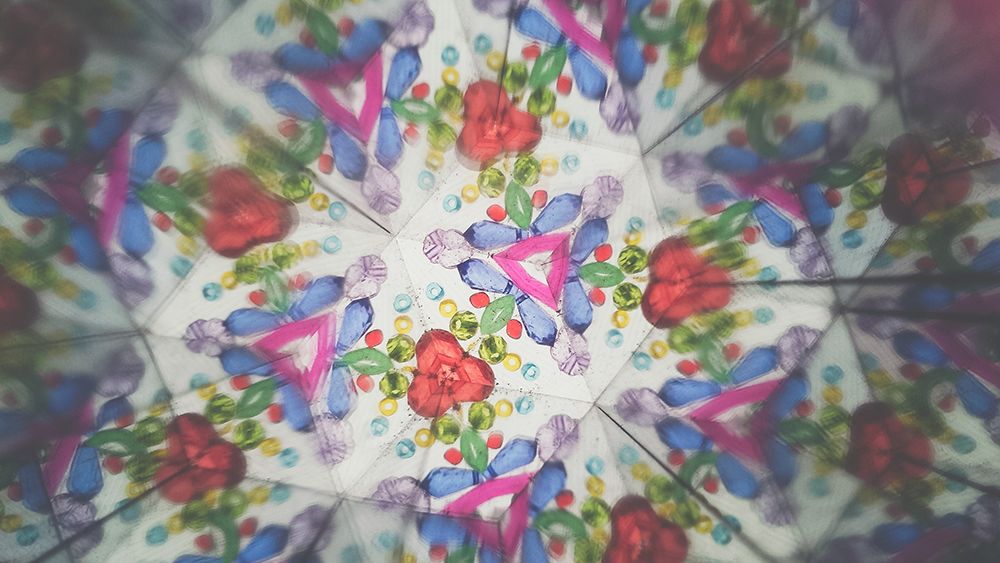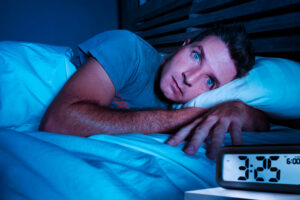What Is HPPD?
HPPD is real, but the full story might not be what you expect. HPPD is a disorder in which a person has flashbacks of visual hallucinations or distortions experienced during a previous hallucinogenic experience, particularly LSD. It is worth noting that almost every documented case of clinical HPPD has been related to LSD use.
When seeking clarity, it doesn’t help that HPPD is a term that is often misused and misunderstood. Sometimes people use the term to describe the mild transient effects that can linger in the days or weeks after a psychedelic experience, and sometimes it is used to describe an actual disorder. It is worth noting that as a disorder, cases have been pretty much exclusively reported with LSD use. In the psychedelic community, it can be compared to something like a mysterious Chupacabra or Bigfoot. Everyone seems to have either seen one or at least have heard a story of someone who has. But when it comes to solid facts and evidence, things get a bit fuzzy.

Sometimes, people will develop a mental illness after experimenting with psychedelics, but this does not mean that the psychedelic experience caused the illness. It is bound to happen since 1% of the population will invariably develop schizophrenia and this number does not change regardless of their psychedelic exposure. Several other mental illnesses also list hallucinations as symptoms. If someone develops any one of these conditions after experimenting with psychedelics, it could be misappropriated as HPPD. During the “War on Drugs” of the 80’s, there was a lot of political pressure to demonize these substances. Now, in 2021, we are having to reevaluate everything we know as we start to realize their potential as medicine.
Altogether, it is a combination of word misappropriation and urban legend that makes it so difficult for the average patient just looking for a clear answer. You want to know if taking psychedelics to treat your chronic depression or chronic pain is going to ruin your vision. When you ask around in the “psychedelic community” what you get is a bizarre combination of urban legend and gnarly party stories about music festivals. If you try asking anyone who is into meditation and mindfulness if there are any lingering visual effects, they will likely give you a little mysterious smile and say, “Oh yes, and it’s GLORIOUS.” Not exactly the answer nor the reaction you were expecting, right? Let’s break it down piece by piece.

Why The LSD Association
LSD is a synthetic substance that may or may not be “pure” when purchased for recreational use. The effects of LSD will also last significantly longer than a natural substance like psilocybin. The trip goes on for up to 12 hours, while a mushroom trip is only about 6 hours. Whether it is the duration or impurities that is related to potential lingering effects, LSD seems to be the common theme among HPPD cases. It is extremely potent, long lasting, and there is a good chance it was made in some college kid’s dorm bathtub. There is a laundry list of nasty byproduct chemicals that I can neither spell nor pronounce that could be accidentally produced in the process. It is not possible to know exactly what caused the symptoms in these cases, because no one really knows for sure what substances were involved.
HPPD And Mental Illness
Experimenting with recreational drug use is more common among young adults. People over 40 or 50 do not usually decide to experiment with recreational drugs without prior experience. Some mental illnesses, like schizophrenia, first start to show symptoms in late teens to young adults. In several cases, people have attributed some of the first symptoms of their mental illness to their experience with psychedelics. Is it a coincidence? Did the use of psychedelics exacerbate the onset of symptoms? While possible, there is no significant statistical correlation between these illnesses and psychedelics. Schizophrenia occurs in the population that uses psychedelics at the same rate that it occurs in the general population. Many of these patients also reported “visual disturbances” before psychedelic use, so I think it is a bit misleading to label them HPPD. It is not fair to assume that all hallucinations that occur after psychedelic use should be labeled HPPD, regardless to whether they are related to psychedelic use or not.
A Transient Effect
The term HPPD has been sort of appropriated to refer to any type of visual effect resembling the psychedelic experience that occurs after the effects of the substance has passed. Almost everyone who has experienced psychedelics has experienced something like this to some degree. For those seeking to incorporate psychedelics into a meditation practice, it is in fact a desirable effect.
I will only speak about the effects of meditating on mushrooms here, not the HPPD that may be a disorder associated with tainted LSD. Relaxing, letting your mind wander, your eyes lose focus, or engaging in meditation in the days immediately following a psychedelic experience can produce some interesting results. Some of these results may be visual. The most common effect is that the color patterns that you see on the black field when your eyes are closed will take on a more organized, geometric pattern.
These effects fade quickly, especially if you do not meditate often and cultivate the skills to recall them. The brain on psychedelics resembles a brain in a deep meditative state, and it seems quite easy to slip back into a meditative trance in the following days. Are people sometimes referring to this phenomenon when they talk about flashbacks or HPPD? Maybe. I imagine the effect could be off putting to someone who did not enter the experience with the intention of cultivating a meditation practice. Surprise guerilla “zen” could be disturbing if you are unprepared.
Bottom Line- What Are The Risks?
I have not been able to find a single case in psychiatric literature that involves an occurrence of true HPPD from psilocybin alone. The precious few mushroom related HPPD cases involve a mixture of other substances as well. If you are going to develop HPPD from mushrooms alone, you would be making some medical news.
Psilocybin is a naturally occurring unadulterated substance that has excellent therapeutic potential. Should you base your decision to seek life changing treatment on the fear of an obscure side effect associated with tainted party drugs?
Take my personal experience into consideration. When I am not working at the retreat, my regular 9-5 job involves working with a microscope. It is of the utmost importance that my vision stay sharp and accurate since I am measuring with small tools and using fine instruments. If there was a problem with my vision, I would know immediately. In my case, there have been no issues at all. I dose more often than most, keeping up with a once a month schedule.





